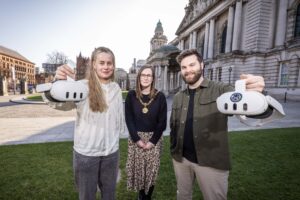Secondary pupils within the GLF Schools trust will have limited online access between 8.30AM an 3PM thanks to new software.
Around 2,300 students will participate in the pilot trial, which hopes to remove technological distractions, improving concentration. Dangerous content is also cited as a cause for concern, including political disinformation and misinformation, pornography and extremism.
Children at Glyn School in Ewell, Merstham Park at Redhill, Epsom’s Rosebery School, and Meridian High School in Croydon are taking part. Activated at 8.30AM, the start of the learning day, Blackout will prevent all users from accessing smartphone functions other than SMS texts, maps, calendars, and other ‘essential’ applications.
In a bid to ensure participation, mobile phones will be checked to make sure Blackout is installed, although it’s not clear how this will take place. However, GLF’s decision to rollout the technological blockade has been taken partly because blanket smartphone bans were difficult to enforce.
The impact of the policy will be monitored and results published to help other trusts and educational organisations make an informed decision about whether to follow a similar model.
Commentators have already noted that a recent UK study found little to no improvement in mental wellbeing, concentration and classroom behaviour when students were stopped from using smartphones in school. Nevertheless, reducing overall screen time, and social media in particular, has been shown to exacerbate these issues.
‘The rise in smartphone usage amongst young people has been linked to increased anxiety, reduced concentration, and disrupted sleep patterns, as highlighted in the book The Anxious Generation and recent documentaries,’ GLF said in a statement. ‘While we don’t believe there is a specific issue with phone usage at our schools, we aim to foster healthier habits for our students through this pilot.
‘[Blackout] works by blocking access to distracting apps, including social media, games, and web browsers, during school hours,’ the trust continued. ‘The app will disable cameras and recording features, and block social media, games, and encrypted messaging platforms, while maintaining access to calls, SMS, maps and calendars. Expected benefits for our pupils include more focus in the classroom, a calmer school environment with fewer phone-related disruptions.’
Image: Rami Al-zayat / Unsplash
More technology:
Dorset becomes testbed for new Nuclear Decomissioning Authority security systems
UK Spending Review aims to upgrade government legacy technology


















Leave a Reply